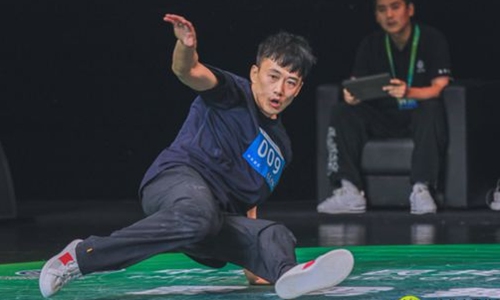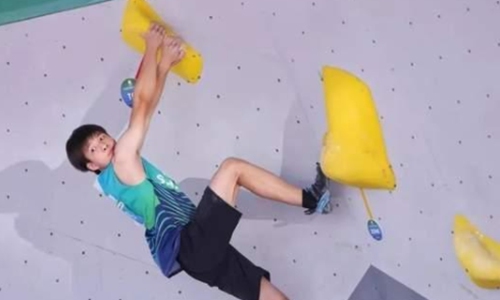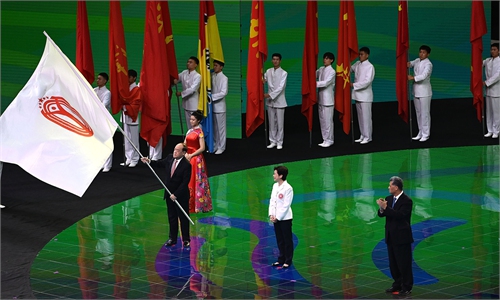SPORT / MISCELLANY
Shanghai dancer becomes first breaking dance gold medalist at China’s National Games

A participant of the breakdancing competition of the 14th National Games
A break dancing event was held for the first time ever as part of China's 14th National Games in Nanjing, East China's Jiangsu Province, on Saturday.Wang Wenlu, a dancer representing Shanghai, won the gold medal after five rounds of tough battles against other athletes. Shang Xiaoyu, representing Shanghai too, won the silver, while Shandong dancer Zhao Xingyu took home the bronze.
Following the introduction of new regulations from China's General Administration of Sport in early June, break dancing was officially included as an official competitive sport for the 14th National Games, the country's biggest national sports gala.
"I'm happy to know the dance type has been included as a sport at the National Games even though I'm an underground dancer. It should be, because it shows the dancer's strengths, a combination of power and beauty," Tommy Yang, a street dancing fan in Chengdu, told the Global Times on Tuesday.
As a competitive sport, the dance style still maintains its well-known original one-on-one battle format and has been divided into both men's and women's divisions.
The decision to promote the particular dance style at the National Games was made to be in line with the International Olympic Committee's (IOC) 2020 decision to officially add break dancing as a medal event for the 2024 Paris Games under the name "Breaking."
Before these two major competitions, break dancing already appeared at the 2018 Youth Olympic Games in Buenos Aires.
Break dancing originated as an athletic type of street dance in the US in the 1960s. It consists of major moves such as power moves, toprock and freezes. B-boys and B-girls are the more "authentic" terms to describe its dancers.
As more and more sub-culture oriented variety shows such as Street Dance of China became popular on online platforms such as iQiyi, this particular dance form that was once not considered mainstream quickly became a hot hobby for young Chinese.
"I chose to learn street dance rather than exercise at the gym because I like its 'flexibility.' When I feel stressed out or slightly down, I'll go dance a couple of hours, chat with dancers and feel the music. It helps with my mental health," Sasa Xu, a dancer in Beijing, told the Global Times on Tuesday.



